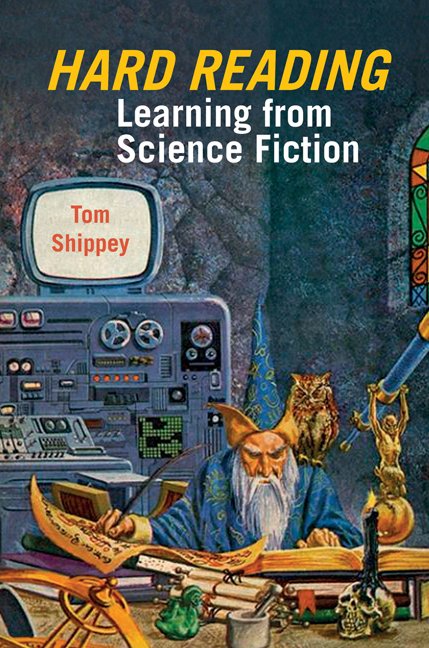Book contents
- Frontmatter
- Dedication
- Contents
- List of Figures
- Note on References
- A Personal Preface
- What SF Is
- SF and Change
- 4 Getting Serious with the Fans
- 5 Getting to Grips with the Issue of Cultures …
- 6 … And Not Fudging the Issue!
- 7 SF Authors Really Mean what they Say
- 8 A Revealing Failure by the Critics
- 9 A Glimpse of Structuralist Possibility
- 10 Serious Issues, Serious Traumas, Emotional Depth
- SF and Politics
- References
- Index
6 - … And Not Fudging the Issue!
from SF and Change
- Frontmatter
- Dedication
- Contents
- List of Figures
- Note on References
- A Personal Preface
- What SF Is
- SF and Change
- 4 Getting Serious with the Fans
- 5 Getting to Grips with the Issue of Cultures …
- 6 … And Not Fudging the Issue!
- 7 SF Authors Really Mean what they Say
- 8 A Revealing Failure by the Critics
- 9 A Glimpse of Structuralist Possibility
- 10 Serious Issues, Serious Traumas, Emotional Depth
- SF and Politics
- References
- Index
Summary
This essay continues the theme of the one before, with the advantage of some thirty extra years of reading, especially in the area of cultural anthropology. As usual, I had picked up a lot of ideas about this from reading science fiction, and no doubt that was what made me go back and actually read the anthropologists themselves, thus acquiring much-needed intellectual context. But the ‘dilemma’ of this piece was there in the earlier one. Does ‘multiculturalism’, or ‘cultural relativism’, mean that you can make no judgements and should refrain from any kind of interference? Sf stories are prepared to argue the matter either way. Arguments for non-intervention or non-judgementalism are put, for instance, by famous stories like Katharine Maclean's ‘Unhuman Sacrifice’ (ASF (March 1958)), Harry Harrison's ‘Streets of Ashkelon’ (New Worlds (Sept. 1962)) and Poul Anderson's ‘The Sharing of Flesh’ (Galaxy (Dec. 1968)) – though Anderson also put the case for deliberate interference, see item 5. As said above, the view that some forms of intervention may be totally destructive, that cultural beliefs are so deeply ingrained in people's personalities that trying to learn (some forms of) new belief may cause terminal social breakdown or send individuals mad was put in definitive form by William Tenn's ‘Firewater’ (ASF (Feb. 1952)) – a story whose title incidentally demonstrates one of the underlying traumas of the American anthropological profession, the wipe-out of many of the indigenous American cultures, not so much by the white man's ‘firewater’ itself as by the whole way-of-life complex associated with it, from agriculture to commercialism and advanced technology. So, the moral seems to be: do not interfere. But if you see something utterly horrible, like mass human sacrifice, or avoidable, like poverty and starvation, what do you do then?
In mass culture, whether literary or political, the question is routinely dodged or the answer fudged, but, as this piece shows, Vance was capable of seeing the arguments both ways, dramatising the dilemma, coming up with different and often ironic answers, and generally seeing all the way round the subject in a thoroughly admirable and adult way.
- Type
- Chapter
- Information
- Hard Reading: Learning from Science Fiction , pp. 103 - 120Publisher: Liverpool University PressPrint publication year: 2016



